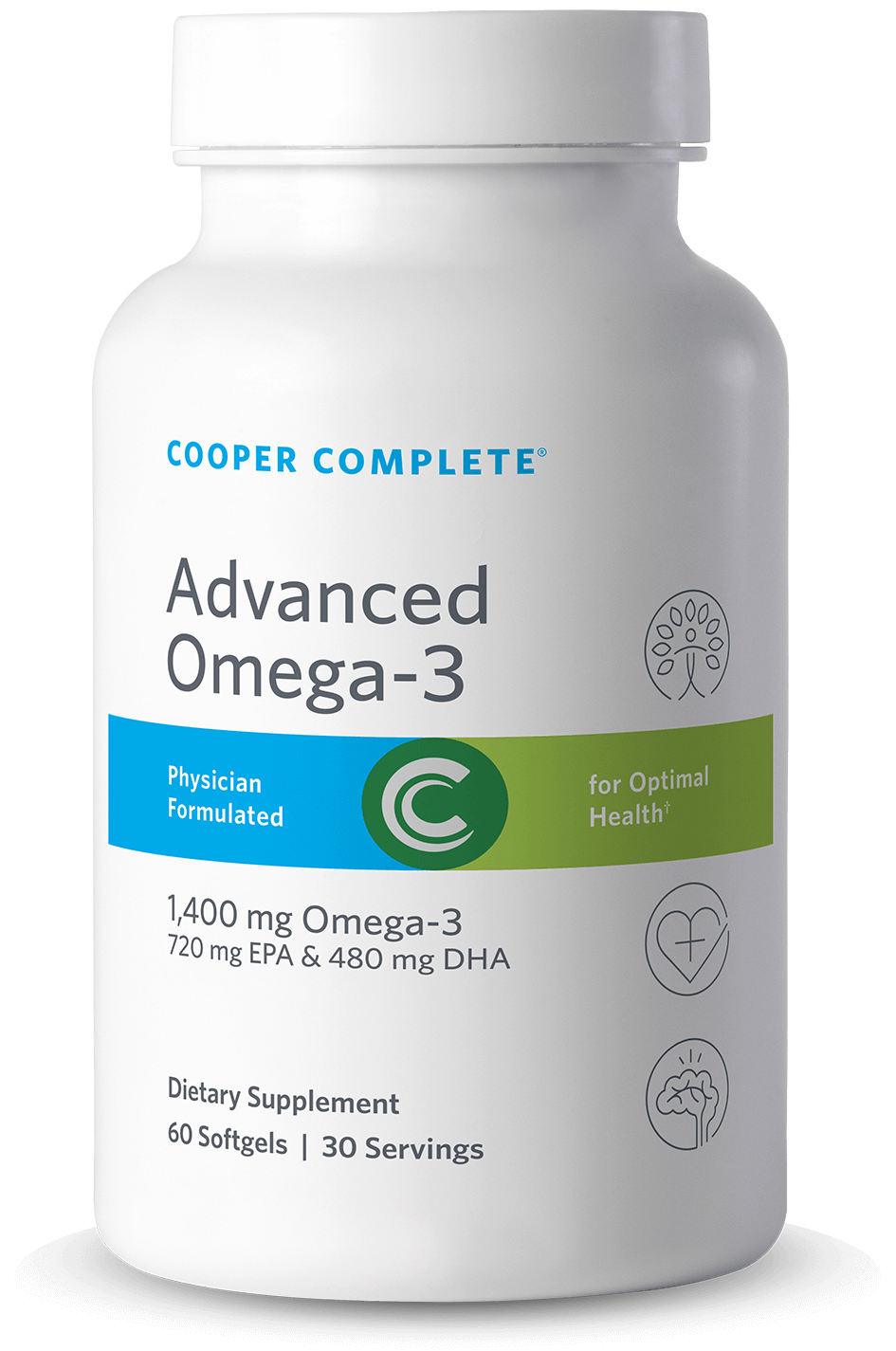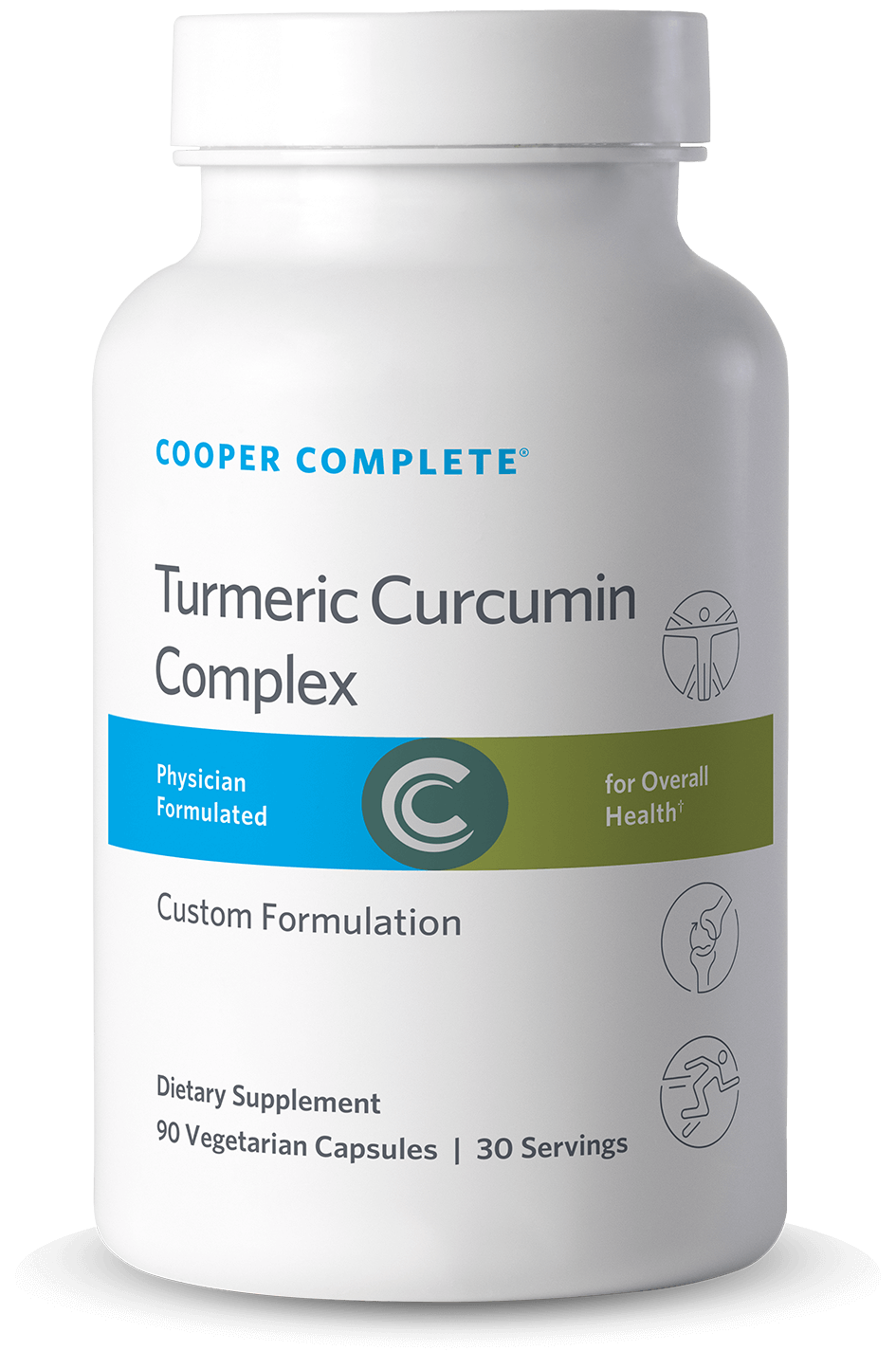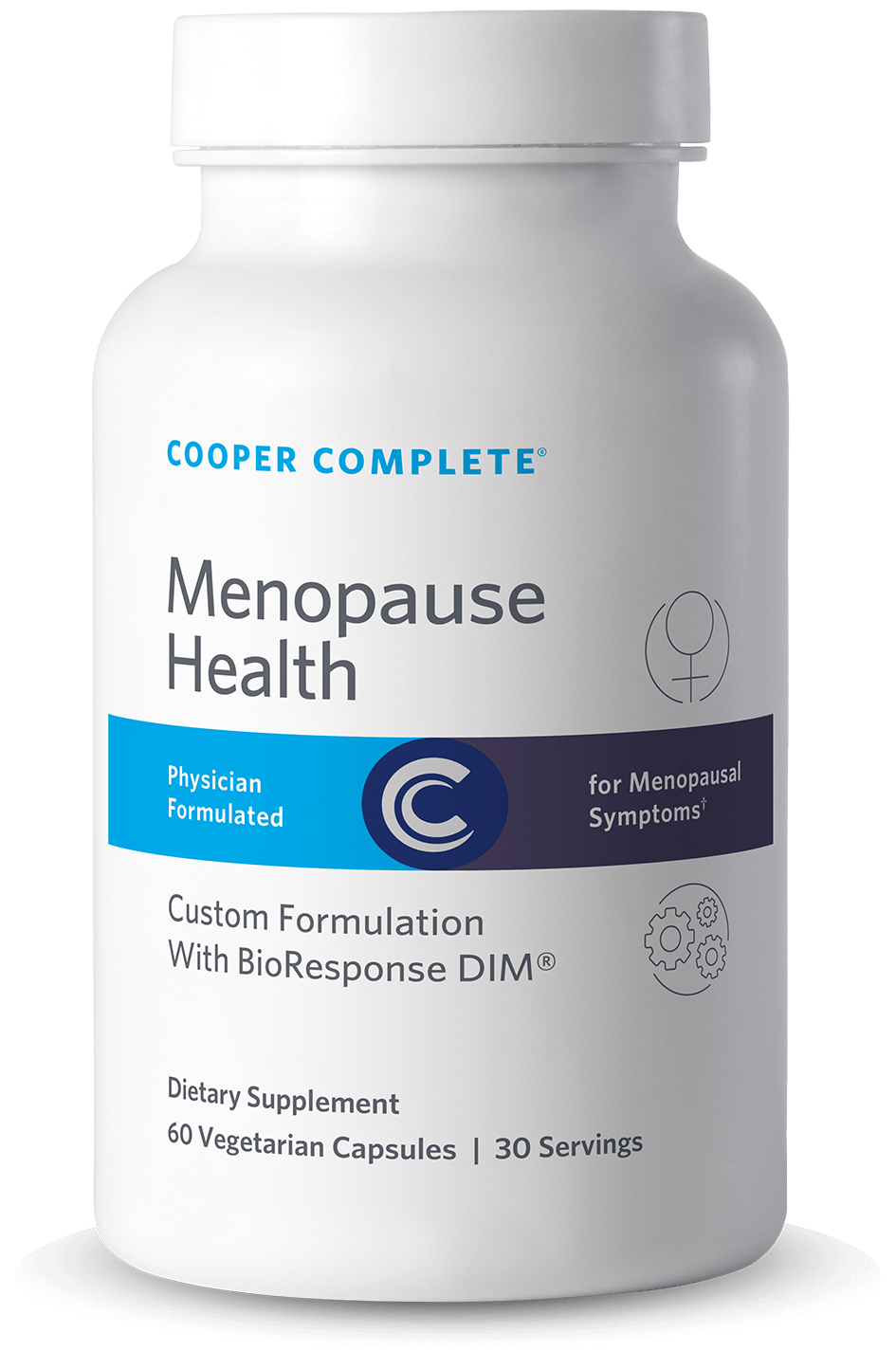Ten Reasons To Take Supplements

One of Dr. Cooper’s components of 21st Century Medicine, besides exercise, weight management, and proper nutrition, is proper supplementation. There are many reasons to take supplements but remember, supplements are aptly named – they are supplements and not replacements. Therefore, you have to start with a good, solid, balanced diet and consider supplements as an insurance policy to cover any diet pitfalls.
The human body needs six essential nutrients from a nutrition standpoint – fat, protein, carbohydrates, vitamins, minerals, and water. The nutrients are necessary for providing the energy to work and think and allow our immune system to help fight disease. But unfortunately, no matter how hard we try, most of us are not getting the proper amounts of vitamins and minerals through our diet alone.
When considering reasons to take supplements and what supplements you should take, ask yourself these questions:
1. Do You Skip Breakfast?
One in four adults regularly skips breakfast. A study found that skipping breakfast means missing out on the calcium in milk, vitamin C in fruit, and fiber found in cereals. Unfortunately, we don’t make up for these missing nutrients later in the day, creating a nutritional deficit. The US Department of Agriculture’s latest dietary guidelines considers calcium, potassium, fiber, and vitamin D as dietary components of public health concern because shortages of these nutrients are associated with health problems.
If you skip breakfast and don’t consume lots of dairy in your regular diet, bone health is an excellent reason to consider calcium supplements to meet your body’s need for this mineral. If you don’t consume the optimal amount of calcium in your diet, supplements may help. Cooper Complete Calcium Citrate contains 250 mg of calcium citrate per tablet.
Cooper Clinic Calcium Requirements by Age
|
||
|---|---|---|
| Age | Men | Women |
| 19-50 Years | 1,000 mg | 1,200 – 1,500 mg |
| 51-70 years or low bone density | 1,000 mg | 1,500 mg |
| 70+ years | 1,200 mg | 1,500 mg |
2. Do You Eat Far Too Few Fruits and Vegetables?
Dr. Cooper has long recommended five servings of fruits and vegetables per day and has championed, “five is fine, but nine is divine.” Sadly, the CDC’s latest report found only 12.3 percent of surveyed adults met the recommended guideline of at least 1 1/2 to 2 cups of fruit, while only 10 percent consumed the recommended 2 to 3 cups of vegetables per day. Fruits and vegetables are rich in vitamins A, C, E, and K and minerals like potassium and magnesium. Not getting enough fruits and vegetables increases the likelihood of deficiencies and increases disease risk.
Studies have shown suboptimal levels of vitamins are risk factors for chronic diseases such as cardiovascular disease, cancer, and osteoporosis. The risk of heart disease is 20 percent less among individuals who consume five servings of fruit and vegetables than those who consume less than three servings per day.
The research shows our diets are pretty incomplete. So, with that understanding, you may be asking, “What supplements should I take?”.
Start with a good multivitamin. Vitamins come in two forms – fat-soluble and water-soluble. The fat-soluble vitamins are A, D, E, and K. Fat-soluble vitamins are stored in the body. These vitamins are best taken with a meal that contains some healthy fat for the best absorption.
The water-soluble vitamins are vitamin C and all of the B vitamins. With water-soluble vitamins, the body uses what it needs and then passes the rest. Although water-soluble vitamins can be taken with or without food, multivitamins combine fat-soluble and water-soluble vitamins, so take any multivitamin with meals.
3. Is Your Vitamin D Level Lower Than Ideal?
What supplements may you need in addition to a good multivitamin? Forty-two percent of the population is deficient in vitamin D. We know vitamin D plays a role in bone health; however, research indicates that vitamin D plays a much more significant role than just bone health. Vitamin D deficiency is associated with an increased risk of at least 17 cancers, including ovarian, breast, colon, prostate, and pancreatic cancer. Low vitamin D is also linked to cardiovascular disease (our #1 killer), diabetes, immunity, depression, chronic pain and many other conditions.
Epidemiologist Cedric Garland, DrPH, whose research primarily focuses on breast, colon and melanoma cancer, said in an American Journal of Public Health article that “the benefit of vitamin D is as clear as the harmful link between smoking and lung cancer.”

Advanced Omega-3 Supplement
Advanced Omega 3 Supplement contains 720 mg EPA, 480 mg DHA, and 200 mg other omega-3 fatty acids in each serving of two lemon-flavored softgels. Omega 3 supplementation supports heart health, cognition, immune, and inflammatory health without any fishy aftertaste.†
$22.98 Add to cartD is known as the “sunshine vitamin” because the body can synthesize vitamin D from sunlight, but being outside a lot doesn’t necessarily mean we get enough vitamin D. A sunscreen with an SPF of at least 15 blocks 99 percent of vitamin D synthesis. Increasing your vitamin D level through diet alone is quite difficult. The only way to measure vitamin D is through a blood test called 25-hydroxy vitamin D. You should have a level of at least 30 nanograms per milliliter.
The Cooper Clinic recommends taking at least 50 mcg of vitamin D per day. Cooper Complete multivitamins Basic One and Original contain 50 mcg of vitamin D per serving, while Gummy Multivitamin contains 25 mcg. We also provide several different vitamin D products for those who need additional supplementation. In all Cooper Complete formulations, vitamin D is D3 (the cholecalciferol form), as D3 is generally more effective/absorbable than vitamin D2.
4. Do You Eat At Least 8 Ounces of Salmon (or other fatty fish) Each Week?
The Dietary Guidelines for Americans 2020-2025 recommends adults consume at least 8 ounces of fatty fish such as salmon and sardines each week. Fatty fish are rich in the long-chain omega-3 fatty acids, EPA and DHA, and these nutrients have been linked to many health benefits. Unfortunately, nearly 90 percent of Americans do not consume enough fish (fatty or otherwise), but omega-3 fish oil supplements are an excellent way to increase levels of omega-3’s. When choosing a supplement, look for a product with a high concentration of EPA and DHA, the long-chain omega-3s that are so beneficial. Unfortunately, many supplemental fish oils in the grocery store or the pharmacy contain only a 30 percent concentration of EPA and DHA. Better quality fish oils will have a 50 to 60 percent concentration, so read the ingredient panel. For example, Cooper Complete Advanced Omega-3 is a 60 percent concentration of EPA and DHA in the superior re-esterified triglyceride form.
We recommend getting at least 1,000 mg of EPA and DHA combined every day. This is not 1,000 mg (1 gram) of fish oil – it is 1,000 mg of EPA plus DHA. (Two soft gels of the Cooper Complete Advanced Omega-3 provide 1,200 milligrams of EPA and DHA plus 200 mg of other omega-3 fatty acids.
This omega-3 and seafood infographic shows how many omega-3 fatty acids are in commonly eaten seafood.
(Read this article if you’d like more information on how to compare different omega-3 products.)
Cooper Clinic started routinely measuring omega-3 levels in patients in 2009 and recommends an omega-3 index of 8 percent or higher. Unfortunately, most patients not taking a high-concentration omega-3 supplement typically have an undesirable omega-3 index of 4 percent or less.
5. Would You Like To Lower Your Cholesterol Without Medications?
Heart disease is the leading cause of death in the United States, and high cholesterol raises heart disease risk. The CDC estimates only around 55 percent of adults who could benefit from statin medications are actually on them. More than two decades ago, Dr. Cooper wrote Lowering Cholesterol The Natural Way to explain ways to lower cholesterol naturally.

Turmeric Curcumin Supplement
Contains 1000 mg of turmeric extract, which is standardized to contain 95% curcuminoids, and 10 mg of black pepper in 3 vegetarian capsules. Physician formulated to support a healthy inflammatory response.
$35.98 Add to cartCooper Clinic physicians suggest several supplements to lower cholesterol naturally. Nina Radford, MD, Cardiologist and Director of Clinical Research at Cooper Clinic, notes that 900-1500 mg Berberine can reduce cholesterol by 25 percent.
Cooper Clinic Nutrition Services discusses how food can be a friend or an enemy when trying to lower your cholesterol. Limiting saturated fat to less than 7 percent and trans fats to less than 2 grams can reduce LDL cholesterol by 8 to 10 percent. And consuming 7- to 13 grams of soluble fiber in your daily diet can reduce LDL cholesterol by 3- to 7 percent. Good sources of soluble fiber include oats and psyllium.
6. Do You Follow a Plant-Based Diet?
While only 3 percent of Americans are strict vegans, the number of Americans following a less restrictive, plant-based diet is 9.7 million. If you are part of the population moving toward more plant-based meals, you may have some nutrient deficiencies.
A good reason to take a supplement, such as B12, is because this essential nutrient is found almost exclusively in animal-sourced foods. The NIH found that 32 percent of those that exclude animal products but include dairy and eggs are deficient in vitamin B12.
Other common deficiencies include Vitamin D and Omega 3. The importance of taking these supplements is listed above.
7. Do You Have Eye Issues?
Maybe age has affected your visual health with cataracts or AMD (age-related eye disease), or perhaps the amount of time spent on digital devices has caused eye fatigue from blue light. Ensuring you are getting enough lutein can help. Lutein is a carotenoid found in green leafy vegetables, broccoli, peas, and egg yolks. The most concentrated area of lutein is found in the macula region of the retina. It helps filter harmful UV rays and blue light, slowing the development of cataracts.
If your family has a history of AMD, the AREDS2 study provides an excellent reason to take a supplement with lutein and zeaxanthin. Cooper Complete Eye Health, when taken with a Cooper Complete adult multivitamin, contains the formula used in the AREDS2 study. Researchers found that taking supplements used in the AREDS2 study reduced the risk of progression from intermediate to advanced AMD by 25 percent.
AREDS2 Formula
|
|
|---|---|
| Nutrient | Amount |
| Vitamin C | 500 mg |
| Vitamin E | 400 IU |
| Copper | 2 mg |
| Lutein | 10 mg |
| Zeaxanthin | 2 mg |
| Zinc | 80mg |
8. Do Your Knees and Other Joints Hurt?
Frequent knee pain affects approximately 25 percent of adults. Factors such as age, weight, previous injury, overuse, or arthritis may cause joint pain. This pain can limit mobility and impair the quality of your life. There are many reasons supplements for joint pain may help. Reducing inflammation is key to relieving joint pain. Turmeric and Boswellia serrate both have anti-inflammatory properties. Studies have found that turmeric may reduce pain as much as over-the-counter pain medications. Since many medications have side effects and may not be recommended for long-term use, turmeric offers an alternative.
If your joint pain results from cartilage deteriorating, scientists believe glucosamine and chondroitin supplements may help. Glucosamine and chondroitin are found in healthy cartilage-the connective tissue that provides cushioning for your joints. The MOVES trial found the combination of glucosamine and chondroitin as effective at relieving knee osteoarthritis as prescription celecoxib (CeleBREX), without the side effects.
Lifestyle changes can help too.
- Maintain a healthy weight. Every additional 10 pounds of body weight increases the force on the knee by 30-60 pounds each step. Therefore, each pound lost will result in a four-fold reduction in the load exerted on the knee per step.
- Resistance training can help maintain or increase muscle strength to support and protect joints.
- Stay hydrated. Cartilage is about 80 percent water. So if you are dehydrated, your body will start getting water from other sources, including your cartilage.
9. Do You Have Difficulty Sleeping?
If you have difficulty falling asleep or staying asleep, you are not alone. The CDC reports 1 in 3 adults do not get the recommended 7 hours of sleep per day.
Good sleep habits can help you get a good night’s sleep.
Some habits that can improve your sleep:
- Be consistent. Go to bed and wake up at the same time each day, including on weekends.
- Make sure your bedroom is quiet, and dark, has no electronic devices, and is at a comfortable temperature.
- Avoid large meals, caffeine, and alcohol before bedtime.
- Get some exercise during the day.
If you already practice good sleep hygiene and still have difficulty sleeping, there may be a good reason to take a supplement to help you get the rest you need. Consider magnesium to relax and aid in sleep. Studies show that magnesium plays a key role in regulating sleep. Sixty-eight percent of adults don’t consume enough magnesium in their diet or through supplementation. Research shows that increasing your magnesium intake improves your sleep. Magnesium helps quiet the mind and body, making it easier to fall asleep.
Another supplement you may consider is melatonin. Melatonin is a hormone made in the body that regulates sleep-wake cycles. Melatonin supplements work to mimic the natural effects of melatonin in the body. Cooper Complete Quick Release Melatonin is formulated to help you fall asleep, and Prolonged Release Melatonin is designed to help you stay asleep.

Menopause Health Supplement
Custom-formulated to assist women in getting restful and rejuvenating sleep by addressing symptoms of anxiety, restlessness, and night sweats.†
$43.48 Add to cart10. Are You Experiencing Age-Related Health Issues?
Women- Hot Flashes and Other Menopause Symptoms Affect Your Quality of Life
The average age woman experiences menopause is 52. Menopause can bring both physical and psychological symptoms. Around 75 percent of women experience vasomotor symptoms caused by constriction or dilation of blood vessels. Hot flashes, night sweats, palpitations, and migraines are examples of some of the symptoms you might experience.
Around 45 percent of women experience psychological symptoms during menopause. These include anger/irritability, anxiety/tension, depression, sleep disturbance, difficulties concentrating, and lowered self-esteem/confidence.
Maintaining a healthy diet and getting regular exercise can help you feel better. Hormone replacement therapy (HRT) can help relieve menopausal symptoms; however, for various reasons, many women opt not to use (HRT) and prefer to take supplements instead. Cooper Complete Menopause Health is formulated to support normal perimenopause and menopausal symptoms and healthy estrogen levels.†
Men- Symptoms associated with BPH
As men age, the prostate grows slowly, leading to symptoms of an enlarged prostate. More than 50 percent of men have symptoms of benign prostatic hyperplasia (BPH) by age 60.
There is no way to prevent BPH; however, losing weight and eating a balanced diet rich in fruits and vegetables may help. Treatment varies from prescription drugs to surgery. For men looking for a more natural solution, research on several ingredients provide a reason to consider taking a supplement. Cooper Complete Prostate Health supplement contains the antioxidant lycopene and plant extracts saw palmetto and pygeum to aid symptom relief.
Do you have other conditions you think supplements might help?
If you are concerned about other health issues, we might have a supplement to help. Take our quiz for a more individualized recommendation of what you need.

